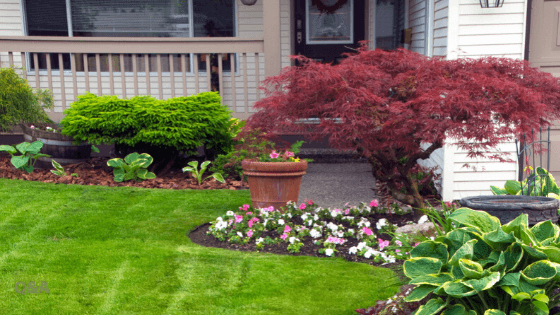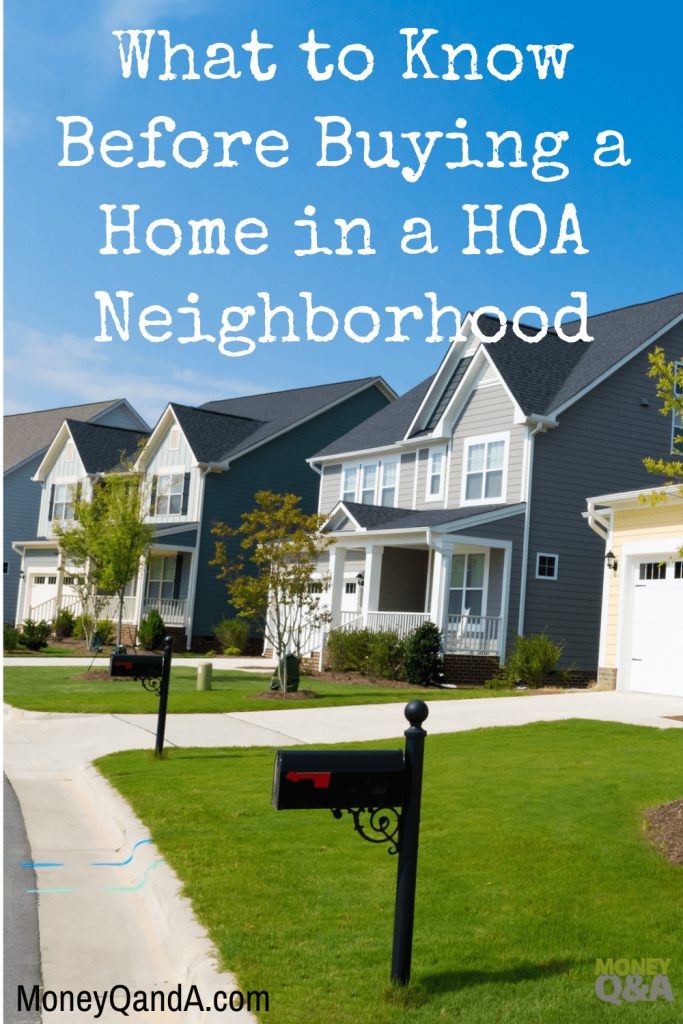
There are many misconceptions about homeowners associations (HOAs) in media and pop culture, which may inadvertently drive people away from buying a home in an HOA neighborhood that they might’ve otherwise loved living in. There are certainly some disadvantages to HOAs, but the downsides aren’t as clear-cut as you might think.
Before Buying a Home in a HOA Neighborhood
If you’ve considered purchasing a home in an HOA neighborhood, then here’s what you need to know before making your final decision.
What is a Homeowners Association?
An HOA is a not-for-profit organization designed to maintain the community and increase property values by setting minimum guidelines for neighborhood safety, exterior appearances, community amenities, and more.
Some people dislike the idea of anyone telling them what to do with their property; there’s nothing wrong with that, but an HOA neighborhood is not for you if you want the ability to decorate the exterior of your home however you’d like and/, or you’re not interested in shared amenities like fitness centers, pools, playgrounds, tennis courts, etc.
What Does a Homeowners Association Do?
The HOA is responsible for community management and development projects, including neighborhood landscaping, street cleaning, amenity maintenance and repairs, and common area upkeep (e.g., playgrounds, sports facilities, pools, courtyards). The HOA also establishes and enforces rules that dictate what community members are permitted to do with their property.
Every household in an HOA neighborhood pays fees that generally cover the costs of exterior home maintenance, lawn care, community upkeep, pest control, and street-cleaning / maintenance. Sometimes, HOA fees may also cover insurance for the exterior of your home and city services such as sewer, trash disposal, and water.
How Much Are HOA Fees?
Some of the biggest downsides about buying a home in an HOA neighborhood are undoubtedly the HOA fees. These dues are typically collected monthly and do not stop, even after you’ve paid off your mortgage.
This means that if you fall behind on HOA payments or don’t want to pay HOA fees anymore, the association may have the authority to place a lien on your property until the debts are resolved (or foreclose the property altogether, in some rare instances).
So, how much could HOA fees cost you?
Trulia Research found that the average monthly HOA fees nationwide were $250 in 2005, but by 2015, the average had risen to $331. This equates to an astonishing inflation rate of 32.4% compared to an inflation rate of 15.1% for median home prices in the U.S. between 2005 and 2015. The Trulia Research report also found that HOA dues tend to be lower for newer buildings (2005-present), buildings with fewer units/amenities, and studios or one-bedroom units (each additional bedroom adds about $30 to the monthly HOA fee).
It’s also important to know that HOA fees can change based on annual inflation and community funding needs, as well as the possibility for HOAs to send your account to collections if you stop paying the monthly fees for whatever reason.
What Are the Covenants, Conditions & Restrictions?
The rules and regulations governing an HOA community are the Covenants, Conditions, and Restrictions (CC&Rs). These cover everything from smoking guidelines, exterior décor responsibilities and restrictions (paint, landscaping, lawn care, etc.), parking requirements, pets (type, quantity, noise, waste), and other matters impacting the community at large.
HOAs may also dictate whether homeowners can rent out their units to short- or long-term tenants or even operate a business out of their homes. If you’re considering an investment property or home-based business in an HOA neighborhood, be sure to thoroughly review the rentals and business activities requirements before making any decisions about your potential new home.
Should You Buy a Home in an HOA Community?
If you want the freedom to do whatever you’d like with your property and/or saving $330 or so per month is a priority for you, then it’d be best to avoid HOA communities. Given the inflation rate for HOA dues, there’s no guarantee that that $330 monthly fee in 2020 won’t be $500 or more in 5-10 years, which could be financially devastating in the long run (particularly for folks on fixed incomes, like retired seniors).
On the other hand, if you’re hoping to find great community amenities like courtyards, pools, fitness centers, or sports courts, and/or you strongly value neighborhood orderliness and safety. An HOA neighborhood might be ideal for your lifestyle needs. Just be sure to carefully review the HOA fees (and your budget) and CC&Rs before finalizing your decision to ensure you settle in a community suited for you and your family’s needs.

